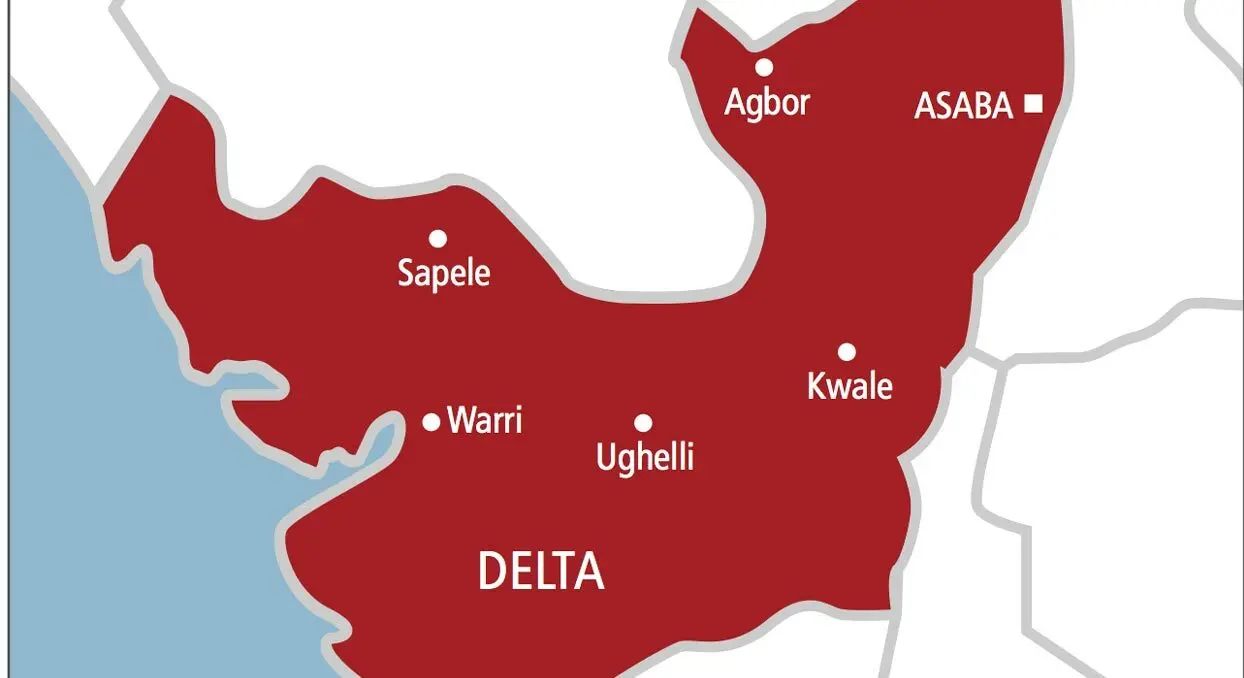
News
Crumbling Roads in Delta Communities: Urgent Plea for Government Intervention

In the heart of Nigeria’s oil-rich Delta region, communities once bustling with optimism now find themselves navigating through a labyrinth of potholes and dilapidated roads.
This blog post sheds light on the dire state of infrastructure plaguing these areas and the cries of the residents for the Federal Government (FG) to intervene promptly. The deteriorating roads not only hamper economic growth but also pose severe threats to the safety and well-being of the people.

The Neglected State of Roads
For years, the people of Delta communities have lived with the harsh reality of impassable roads. What were once sturdy highways have now disintegrated into perilous paths filled with craters and mud pits. The inadequate maintenance and lack of investments have resulted in severe damage, causing immense frustration among the local populace. Despite being a significant oil-producing region, the benefits of this natural resource seem to bypass the very communities it originates from.
Economic Implications
The sorry state of the roads has taken a toll on the economy of these communities. Transportation of goods and services has become a daunting challenge, leading to escalated costs and stifling business growth. As agricultural produce and other commodities struggle to reach markets, local businesses have suffered losses, and the potential for economic expansion remains stifled.
Social Impact
The deteriorating roads have also impacted the social fabric of these communities. Commuting has become an arduous task, affecting the daily lives of residents, including children’s access to education and healthcare facilities. Furthermore, emergency services face severe hindrances when attempting to reach those in need promptly. The resulting frustration and despondency have given rise to feelings of neglect and disillusionment among the people.

Health and Safety Concerns
The deplorable state of the roads poses significant safety risks to both motorists and pedestrians. Accidents have become common occurrences due to large potholes and inadequate road signage. Moreover, the prolonged travel times, coupled with the lack of proper medical facilities in the vicinity, have heightened health concerns for pregnant women, the elderly, and those with chronic illnesses.
READ ALSO: Triumphant Triumph: Troops Eliminate 36 Terrorists and Liberate 140 Hostages Nationwide
Environmental Consequences
Beyond the immediate human impact, the poorly maintained roads have contributed to environmental degradation. During the rainy season, waterlogging in potholes creates breeding grounds for disease-carrying mosquitoes, leading to outbreaks of malaria and other vector-borne diseases. Additionally, the constant road degradation affects nearby water bodies, leading to soil erosion and further ecological imbalances.
A Call for Government Action
In the face of these challenges, the resilient Delta communities have come together to make an earnest appeal to the Federal Government. They call for urgent intervention to repair and upgrade the roads to support their livelihoods and facilitate sustainable development. Adequate funding, efficient project management, and transparent accountability are essential for ensuring that these infrastructural projects yield the desired results.
What You Should Know
The lamentable state of roads in the Delta communities highlights the urgent need for government action. With economic, social, health, and environmental consequences at stake, the Federal Government must respond to these calls promptly and take up the responsibility of rehabilitating the road networks. By investing in sustainable infrastructure, the government can breathe new life into these communities, fostering growth and prosperity for generations to come. Only through collective effort and shared determination can the Delta region truly thrive once again.



























